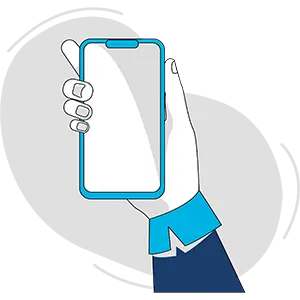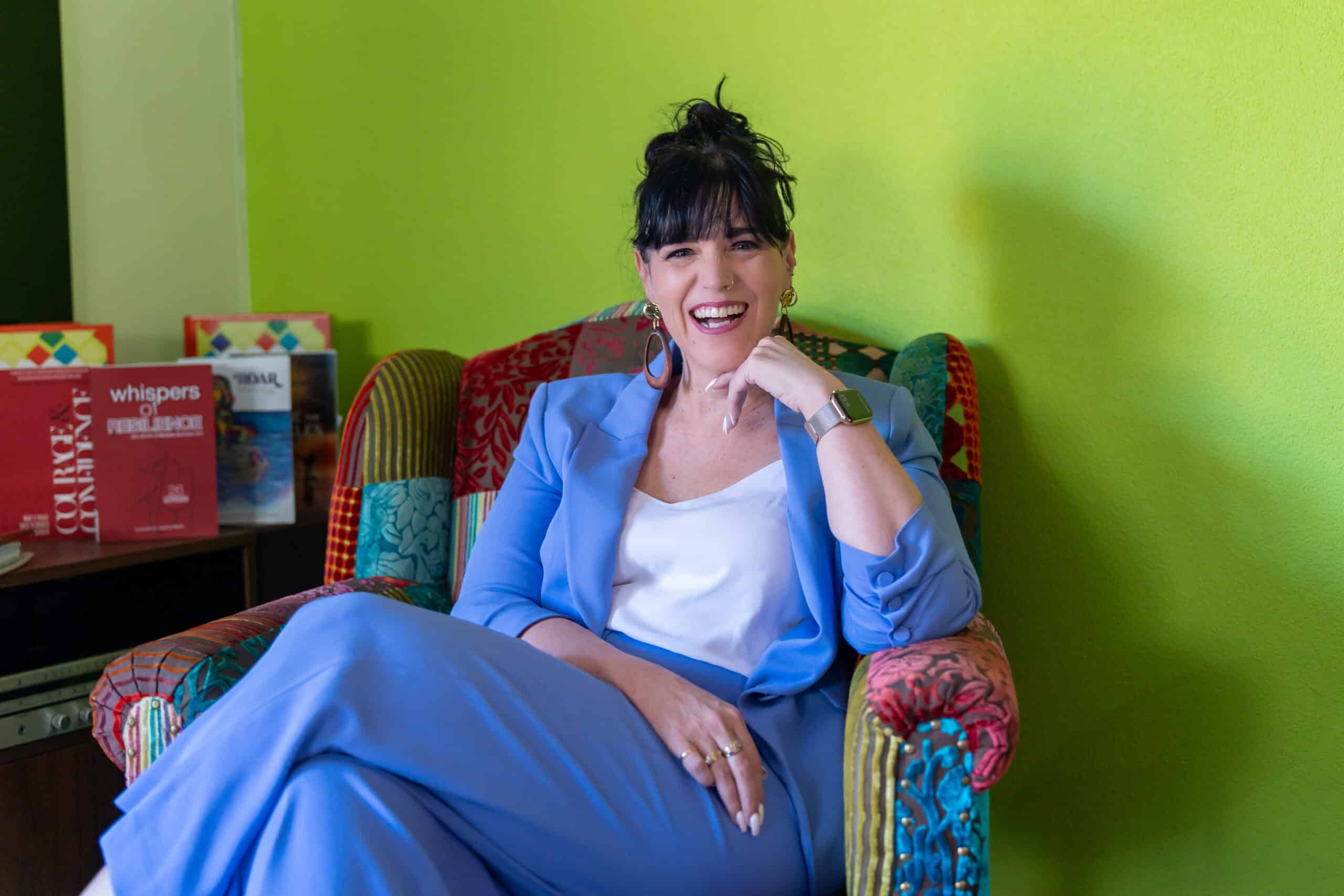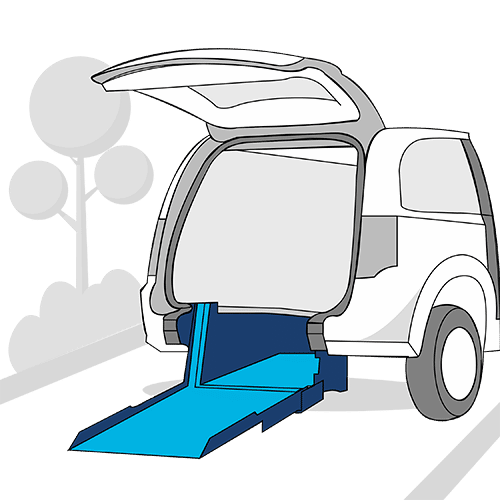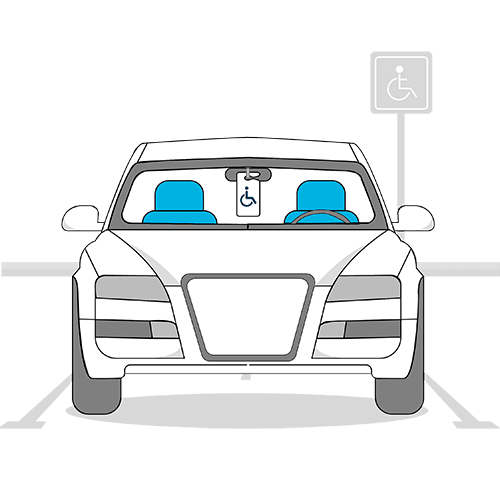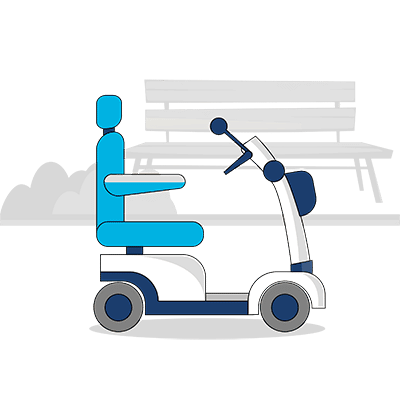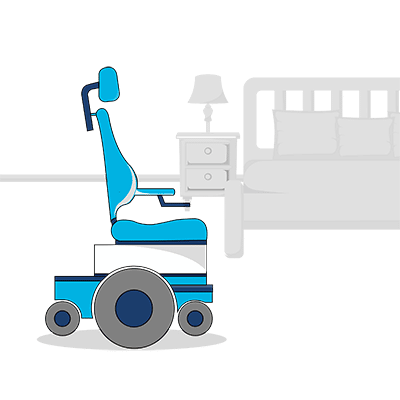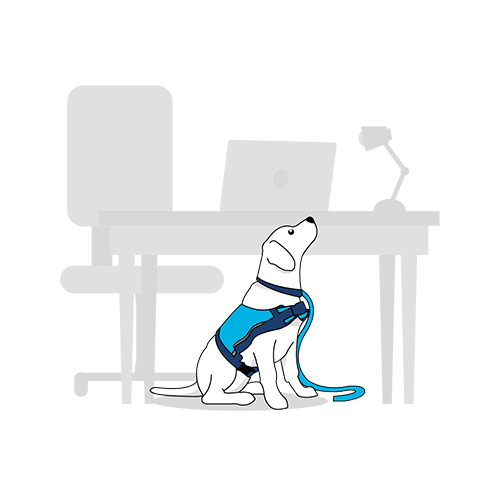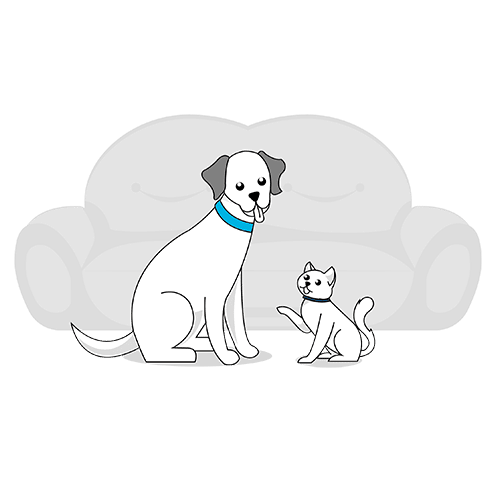International Women’s Day is coming up on 8 March, and we’re putting the spotlight on our local disability visibility activists. One of them is “Resilience Queen” Justine Martin – the founder of seven businesses as well as an author, international keynote speaker, coach, artist, publisher and mentor.
She also lives with multiple sclerosis – a condition that affects four times as many women as men.
Despite facing extraordinary adversity, her story is one of hope, coming from finding deep resilience within herself. We spoke to Justine about her message, work, and how you can share your own story of resilience.
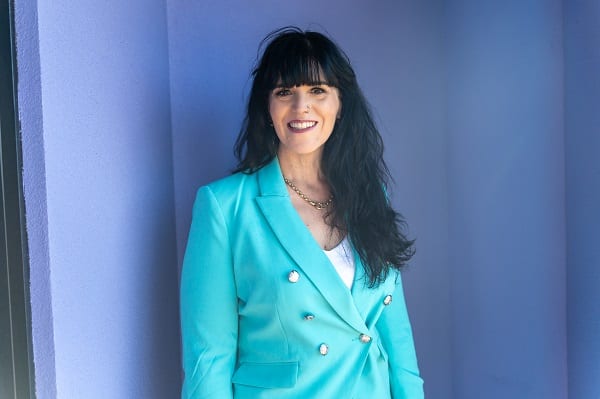
How did the road to being ‘Resilience Queen’ begin?
I was diagnosed with multiple sclerosis (MS) in 2011. I was 40 years old and halfway through my life. What was I going to do with the rest of my life? How was I going to support my teenage daughter?
I didn’t have my own money or independence anymore. I went down a black hole, as a lot of people do when they become disabled.
My partner left me, saying that me having MS would affect his goals and dreams in life. We were under contract to buy a house and engaged to get married. He walked out and left us with nothing.
Centrelink wouldn’t give me money for four months and we lived on food bank. We hit rock bottom. Somehow, I managed to get us through that.
My body had other ideas and I underwent three heart surgeries in 2013, 2014, and 2015.
Then, in 2016, I started going purple with a blood condition called Livedo Reticularis (LR), which led me to be diagnosed with melanoma that year. I was then diagnosed with another blood condition called Mixed Cryoglobulinemia (IgM), where I couldn’t bend my fingers or my toes and needed to use a mobility scooter.
In January 2017, I was diagnosed with chronic lymphocytic leukaemia (CLL) and small lymphocytic lymphoma (SLL). So I had MS, two blood conditions and three primary cancers all at the same time.
Tell us about your healing journey
I learned how to paint in 2012 as a hobby.
It wasn’t a simple case of, ‘Oh yeah, I’m going to go learn how to paint.’ I had major anxiety, crippling anxiety, and I couldn’t walk through an art studio door.
It took four months, and I’d drive there every week and then drive home crying because I was angry at myself. I couldn’t walk through that door, but something kept just stuck with me just to keep going.
‘You are still in there somewhere.’
And then one day, I got really, really angry at myself and thought, ‘What’s the worst that can happen?’
I walked into the front door and I took to it like a duck to water. And I felt whole again.
It was the start of a mental healing process that helped me crawl out of the hole I was in. Fast forward to last year, and I won Geelong’s Business Leader of the Year.
From 2011 to 2023, I reinvented myself for the better, and I now help other people reinvent their lives who have faced their own adversities.
Becoming the ‘Queen Of Resilience’ is about sharing my story as it is someone else’s survival guide.
I became an international keynote speaker and started sharing my story of what makes me me, how I overcame all the adversities and the secrets behind it all. Through all the adversities of life, I feel that you can still live a full and rewarding life and go on to help other people.
Help yourself first, but then help other people as well.
Read more about accessible art.
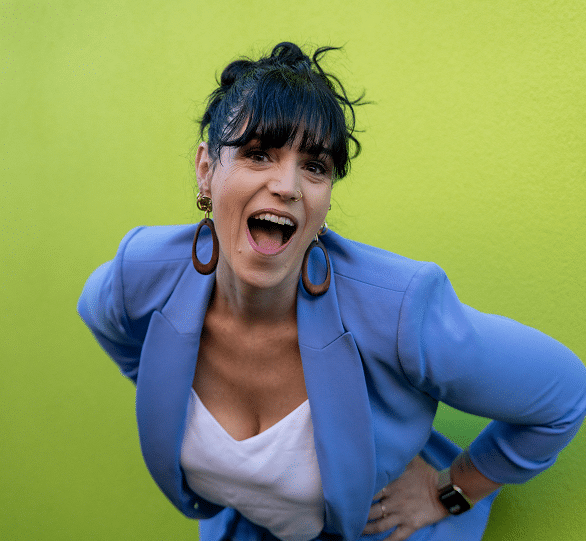
So, what is the secret – how do we build resilience?
You need to have strategies in place before the adversity hits, so it becomes a way of life.
I developed the top “10 tips of Resilience”. These include fuelling your mind, fuelling your body, self-care, decluttering your environment, having a hobby, exercising, and having something to fall back on.
Think of when COVID hit, and we all got stuck in our houses. That was a major adversity that hit the globe. There was only so much TV you could watch before everyone started going stir-crazy, except if you already had a hobby. If you had a creative outlook, you had a creative something in your life… whether it was creative writing, container gardening, knitting, creating art, or something along those lines… then you had something to look forward to.
In my case, I have an inner circle to fall back on – my tribe. I hang around with positive people, not negative people. Art and writing give me an outlet for creative expression.
I control what comes into my mind and what I watch on social media. If someone ticks me off or their values aren’t the same as mine on social media, I don’t unfriend them; I just unfollow them.
The key to adversity is not that you’ll instantly bounce back up. It’s having the strategies put in place that you will bounce back up. There’s a difference there.
And when you have all the strategies in your life, and you’re putting everything into place, then you’ll bounce back up quicker.
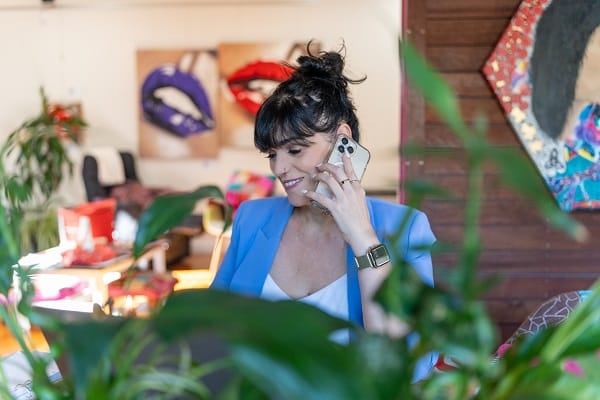
Is resilience in someone’s nature or learned?
I strongly believe it’s both. We’re born with resilience, and an example of that is when we learn to walk.
We can’t learn to walk without being resilient. As toddlers, we stand up, take one step, and fall down, but we stand back up again. Isn’t that being resilient? And no one tells us to do it. It’s ingrained in us, in our DNA.
Then, we learn resilience from our peers, our parents, our teachers, our friends, and our work colleagues.
If you’re hanging around with people who aren’t resilient, that’s when you’ll struggle. That’s when you’ve got to find a different tribe. You can also work on yourself or find a resilience coach like me who can help you put those strategies into place to help build that resilience up.
Resilience comes naturally but is also a learned behaviour. It’s in all of us. But you need guidance to bring it out.
Because adversity is inevitable, right?
Yes – that’s life! Life isn’t all happy. Losing jobs, losing partners, bad things happening … fires, floods, death. And then there are marriages, births, new jobs, and celebrations.
With every high, there’ll be a low at some point, but it’s about getting out of that low, doing it better every time and learning from your mistakes. Knowing when you’re in that position next time, you’re not going to do A, B and C, but X, Y, Z.
Share your own story with Justine and others
One of the many companies Justine runs is Morpheus Publishing, a writing group that empowers those with stories of resilience to share them.
Submissions are currently open to those who want to publish their own memoirs or stories. Justine is also a writing coach and helps others in writing their own stories and getting them out into the world.
Another one of her projects is a podcast called the Resilience Mindset. They’ll soon do a call-out for people to share their amazing stories on resilience on the show for their fourth season.
If you’re interested, contact Justine through [email protected] or through resiliencemindset.com au or morpheuspublishing.com.au.
Visit Justine’s website, Instagram or Facebook page for more.
Insurance for your independence
Your mobility aid is a key part of your independence. Whether it’s a wheelchair, mobility scooter or disability converted vehicle, it’s important to make sure you’re covered in case it gets damaged or stolen.
How about taking this International Women’s Day (and beyond) as a chance for a little self-care in getting your mobility equipment insured? Blue Badge Insurance cover has unique features and benefits specifically for mobility equipment users. This includes third party injury and property damage cover, loss or damage by theft, fire, flood or vandalism, and paying the costs to get you and your equipment home after an accident.
You can find out more here on our wheelchair insurance and mobility scooter insurance pages.

